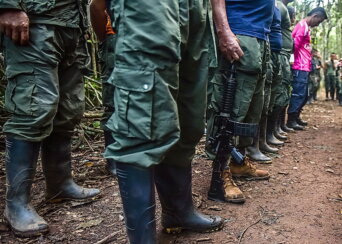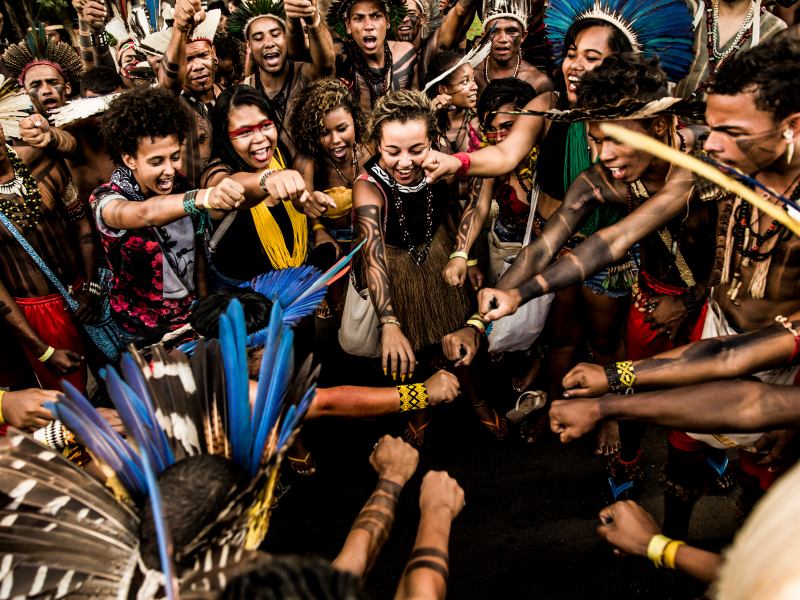- About
- Topics
- Picks
- Audio
- Story
- In-Depth
- Opinion
- News
- Donate
- Signup for our newsletterOur Editors' Best Picks.Send
Read, Debate: Engage.
| topic: | Human Rights |
|---|---|
| located: | Colombia, Venezuela |
| editor: | Ellen Nemitz |
The Revolutionary Armed Forces of Colombia, best known by its Spanish acronym FARC, was officially dismantled in 2016, when the Colombian government and the armed group signed a peace deal.
Nonetheless, that was not the end of a war that victimised millions of people and keeps threatening children who are recruited for armed conflicts and human rights defenders and social leaders’ lives till this day.
The conflicts have been resurging even more intensely during the Covid-19 pandemic. Guerrillas have crossed the border into Venezuela, where FARC dissidents, as well as other armed gangs, such as National Liberation Army (ELN), control communities’ lives, the International Crisis Group reports.
The presence of paramilitary men in Venezuela is not a new phenomenon, says El País, but the government has been allowing it so far. The situation has been changing rapidly since March 2021, when the first military operation took place in the Venezuelan region of Apure, right on the border with Colombia, initiating a series of conflicts. According to information published by Human Rights Watch, conflicts between FARC and ELN, besides the dispute over drug traffic control supported by the Maduro government, led to the escalation of tension.
The organisation condemned the abuses committed by the Venezuelan security forces against people during the operation, as it carried out executions, arbitrary arrests and torture. "The abuses follow a pattern similar to that of systematic abuses that have led to international inquiries into possible crimes against humanity in the country,” the NGO assesses.
In the article titled A Rebel Playing Field: Colombian Guerrillas on the Venezuelan Border, journalist and consultant at International Crisis Group, Bram Ebus, reviews the situation both on the Colombian and Venezuelan sides of the border, where a humanitarian crisis, drug traffic “corridors”, mining and a slew of illegal activities and violent outbreaks take place.
A 2020 report by the United Nations High Commissioner for Human Rights detected a violence epidemic in Colombia, with higher homicide rates and the recurrence of massacres that even victimised children leading to "an intensification of violence and increased territorial and social control by non-state armed groups and criminal groups.”
As reported by El Pais, mass displacements due to violence have led over 27,000 people to leave their home just in the first quarter of 2021, a 177 percent increase compared to the same period last year. Meanwhile, Venezuelans find refuge in Colombia from bombardments, arbitrary arrests and torture.
Furthermore, as Ebus shared in a video posted on Twitter, the armed groups are trying to take control over part of the Venezuelan Amazon, instengaging in mining activities that contaminate the soil and water and therefore destroy forests and the indigenous territories.
Ebus argues that In the short-term, however, there may be little space for a bilateral cease-fire. Mentioning the broken diplomatic relations and the "increased amount of armed troops along the border line,” Ebus stated that “There is no line of communication to de-escalate growing risk of violence along the border line,” and recommended that the governments of both countries “do everything within their possibilities to re-establish a channel of communication."
Image: gummiri 111.

